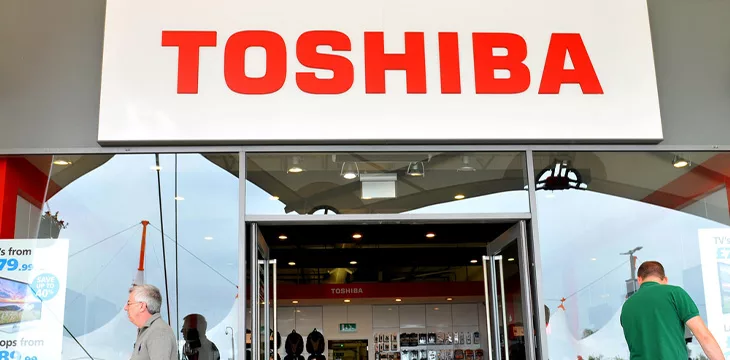|
Getting your Trinity Audio player ready...
|
Multinational technology company Toshiba has unveiled an artificial intelligence (AI) monitoring system for its geothermal power plants to reduce downtimes and improve utilization and performance.
According to a report by Toshiba Clip, the new AI-based monitoring feature will combine Internet of Things (IoT) elements to deliver the final solution for Trouble-Predictive Diagnosis. By combining both hardware and software offerings, Toshiba says it will be able to offer real-time monitoring of power plants far beyond present standards.
To achieve this the company is leaning on its proprietary EtaPRO software to monitor geothermal power plants using AI. EtaPRO will collect a trove of plant data from IoT sensors strategically placed around the power plants before processing the data to identify any potential anomalies.
The software does this by placing current values against “expected operational states” to spot differences in metrics while delivering an early-warning system to plant operators to increase utilization.
Typically, utilization rates for geothermal energy fluctuate wildly due to the difficulty of maintaining geothermal steam from the ground. Other factors plaguing utilization include steam components triggering the deterioration of turbine generators, leading to frequent repairs and downtime.
“Utilizing EtaPRO, the real-time monitoring of equipment conditions directly from Toshiba’s headquarters has proven invaluable to us,” said Andisyah Purdanto, Maintenance Manager at GDE. “Toshiba extends full support regarding equipment knowledge, root cause failure analysis, spare part availability, and technical advisory services.”
EtaPRO has already been used in Indonesia at the Patuha geothermal power plant, recording impressive early results in real-world applications. The report confirms a 2% spike in utilization rates while reducing the occurrence of equipment issues by just over 20%, setting the stage for wider adoption of the system.
Aside from reducing downtime, the tests in Indonesia probed the viability of remote monitoring of geothermal systems. By integrating IoT elements, engineers were able to study data from headquarters in Jakarta and Tokyo while mulling the prospects for remote-controlled power plants.
IoT and AI
As AI advances in leaps and bounds, experts seek new use cases for the technology including integrations with IoT and blockchain technology.
In early May, a group of Japanese-based researchers proposed a blockchain-based system to improve the control of IoT devices remotely. Others argue that blockchain will be the “backbone” of AI and IoT given its privacy and immutability characteristics, but seamless integrations will not be easy.
“Our research team has proposed a broadcast authentication system in which a sender has the ability to control a number of arbitrary target devices remotely and simultaneously,” said Junji Shika, a researcher on the project.
In order for artificial intelligence (AI) to work right within the law and thrive in the face of growing challenges, it needs to integrate an enterprise blockchain system that ensures data input quality and ownership—allowing it to keep data safe while also guaranteeing the immutability of data. Check out CoinGeek’s coverage on this emerging tech to learn more why Enterprise blockchain will be the backbone of AI.
Watch: Blockchain & AI unlock possibilities

 02-04-2026
02-04-2026 




